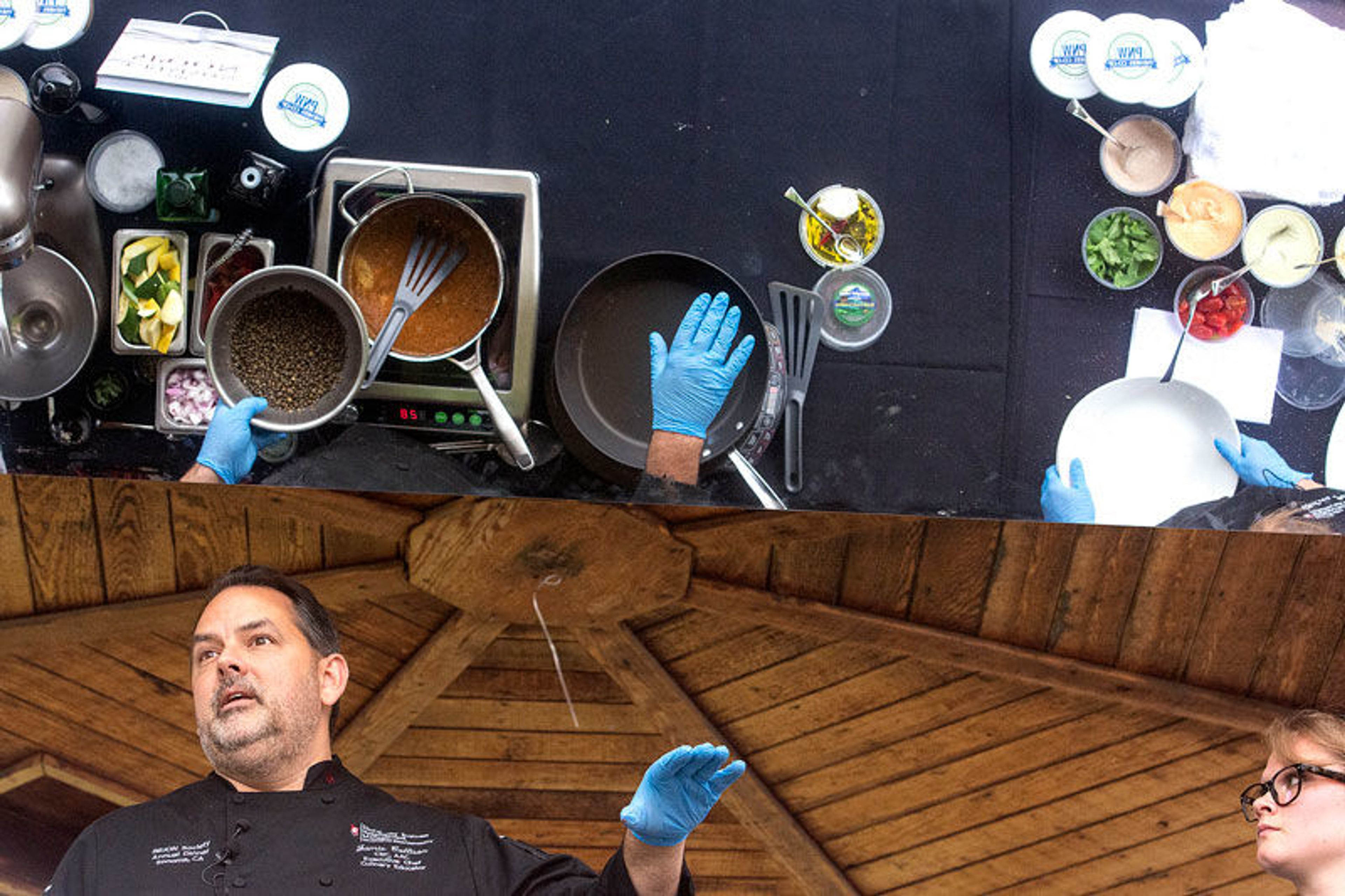Chef spills secrets to good lentil dishes
National Lentil Festival celebrates high protein legume grown locally
PULLMAN — The secret to a delicious lentil dish is the quality of the legume.
At least that’s how Jamie Callison puts it.
Callison is the executive chef for the Washington State University School of Hospitality Business Management and has authored the cookbook “The Crimson Spoon: Plating Regional Cuisine on the Palouse.”
“Buying good quality is very important,” he said. “Don’t buy some of the really cheap products because they have been stored too long, or stored improperly, so they have a weird chalky aftertaste that’s just not something I would recommend.”
He recommends grabbing a shasta variety instead of the more popular, and less expensive, dark brown lentils. Regrettably, Callison said, many people’s first stab at lentils is underwhelming, because they try the wrong kind.
“I love the Spanish browns, don’t get me wrong, but the dark brown lentils, the less expensive product, that’s not quality,” he said. “It just doesn’t taste good. It has an off flavor and it’s bitter. It’s like having bad lamb once: You try it and you’re done with lamb for years.”
Around 18 percent of the nation’s lentils are grown on the Palouse. The farmlands of northern Idaho and eastern Washington are known for producing a very high quality of the legume.
Lentils are “probably one of the most underutilized commodity products,” Callison said.
That’s unfortunate, because they’re high in protein and are excellent at absorbing other flavors, he said.
On Saturday, Callison took to the Gazebo Stage at the National Lentil Festival in Pullman to cook Moroccan lentil and sweet potato cakes, topped with an arugula, cherry tomato salad, labneh cheese and spiced yogurt.
The flavorful smells wafted down to the eager crowd who observed his technique as the annual parade on Grand Avenue and Main Street came to a close.
The samples of the dish he cooked didn’t disappoint.
Chelsea Price, a senior WSU food science nutrition student, said industries have been switching to pulse flours as a substitution to classic wheat varieties. Pulse refers to the dried seed of legumes, a category lentils, beans and chickpeas fall into.
“It’s spreading very quickly and it’s a good thing,” she said. “Pulse flours have higher fiber, more protein and are lower in starch. It provides a higher nutritional value and lowers their costs.”
Price is currently doing a study with pulse flours as she attempts to substitute it into pancakes and bread products.
“It’s going to increase the market for that kind of stuff,” she said.
Another expert tip when working with lentils: cook without fear.
“Don’t be so fearful of something you don’t understand,” Callison said. “There are so many resources and great recipes.”
When grabbing a good variety of lentils, it’s worth the cost, Callison said.
“Buying the right product and even a higher quality is a bit more expensive, but it’s still probably the least expensive protein that you could actually make at home,” he said.
Tomtas may be contacted at jtomtas@lmtribune.com or (208) 848-2294. Follow her on Twitter @jtomtas.













